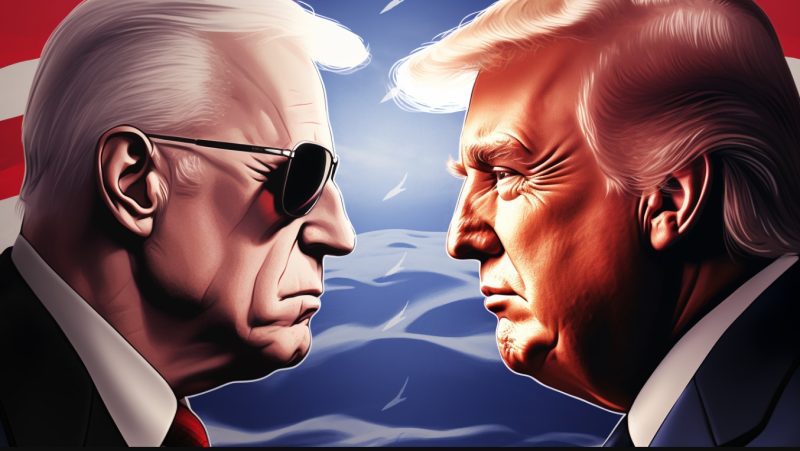
Recent polls have indicated a tight race between President Biden and former President Trump, leading to growing concerns amongst Democrats regarding third-party candidates and their potential impact on the 2024 election.
A Tight Race Between Biden and Trump
According to a New York Times/Siena College poll, President Biden and former President Trump are tied in a hypothetical rematch, each receiving 43% support. While Biden’s approval ratings have improved compared to a year ago, they remain low at 39%. The lack of deep enthusiasm for Biden as an incumbent, and a certain level of pessimism among Democrats about the country’s future, may be contributing factors to the close contest.
Third-Party Candidates: A Concern for Democrats
Cornel West’s Impact
Cornel West, associated with Bernie Sanders, is running on the Green Party ticket. His message might attract the youth, causing anxiety among Democrats, especially those close to Joe Biden. Biden’s team has been monitoring West closely, fearing his influence on young voters and Black men. However, there’s hope that he may drop out later, and efforts to persuade West to quit have so far failed.
No Labels: A Potential Spoiler?
Senator Joe Manchin is considering a presidential run through No Labels, possibly swaying moderate votes from Biden. While No Labels has pledged to avoid the 2024 race if they could be a spoiler, the Democrats remain wary. They trust No Labels won’t play spoiler for Trump if they can’t secure Electoral College votes.
Democrat’s Strategy to Stave Off the Threat
To address concerns, alumni from the Congressional Black Caucus PAC have formed a committee to improve Black male support and rally Black voters. Biden’s advisers downplay the threat, citing his record of diverse appointments and low Black unemployment. There is confidence in Biden’s control of the Democratic National Committee and his chances in the general election.
An Uncertain Future
Despite efforts to ensure unity within the Democratic party, including endorsements by prominent liberals such as Sanders and Ocasio-Cortez, the emergence of third-party candidates and a tied poll with Trump have undoubtedly caused apprehensions. The Democrats may need to reassess their strategies to appeal to broader sections of the electorate, especially the youth and moderates who might be tempted by alternative options.
The scenario also underscores the increasingly complex landscape of American politics, where traditional party loyalties are challenged, and new voices seek to make an impact. It remains to be seen how these dynamics will unfold as the election approaches, but the stakes for the Democratic party are clearly elevated.
